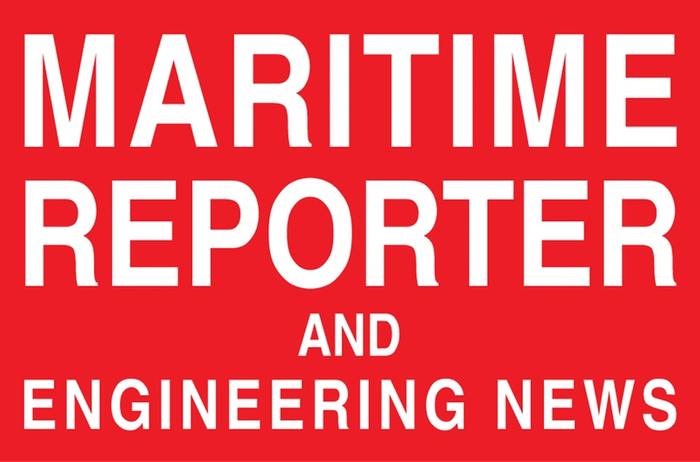Feature
Ship Repair
Detyens Shipyards: Keeping Government, Commercial Ships fit for the Sea
Hugh Chambrovich graduated from the United States Merchant Marine Academy in 2007, soon after coming into dock at Detyens Shipyards in Charleston, SC. He has rapidly ascended the ranks, and today serves as Project Manager, working closely with the U.S. Military Sealift Command as well as other government and commercial customers to help Detyens Shipyards run on-time, on-budget efficient ship repair jobs to fix ships and get them back to sea.
By Greg Trauthwein
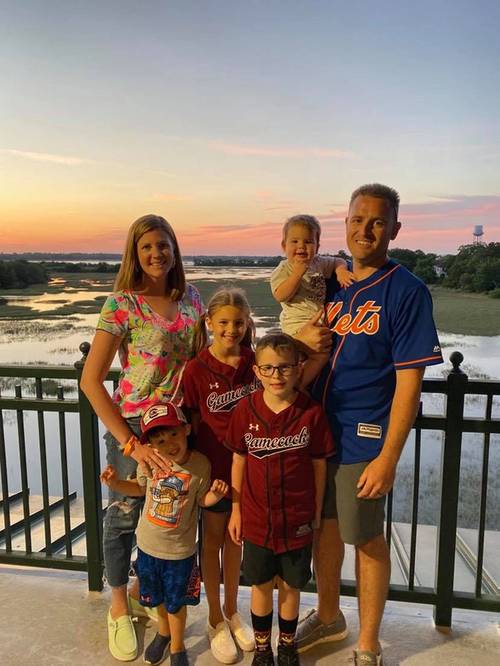
Hugh Chambrovich and his home ‘crew’!
Hugh, can you give us a by the numbers look at Detyens today?
On a good month, we probably have eight to 10, possibly 12 vessels in the yard. That fluctuates throughout the year [and generally we work on 60 to 80 vessels per year, split 60/40 government versus commercial]. We do a variety of different types of vessels between government, commercial and then within the government, MSC, NOAA, Army and Coast Guard.
What do you count as your most valuable assets in attracting and running ship repair jobs?
I think it's the people that everyone keeps coming back. We moved into the old Navy yard back in 1995 and have constantly upgraded. We've added multiple tower cranes at each of the dry docks. Just recently we had a brand new floating dry dock, to which we added a new tower crane. Then within the last two years, we've expanded over to a larger building for our hull shop, which has helped us tremendously, particularly on a couple of recent big jobs where I had a lot of steel work. That larger facility helped the project run smoothly.
The People
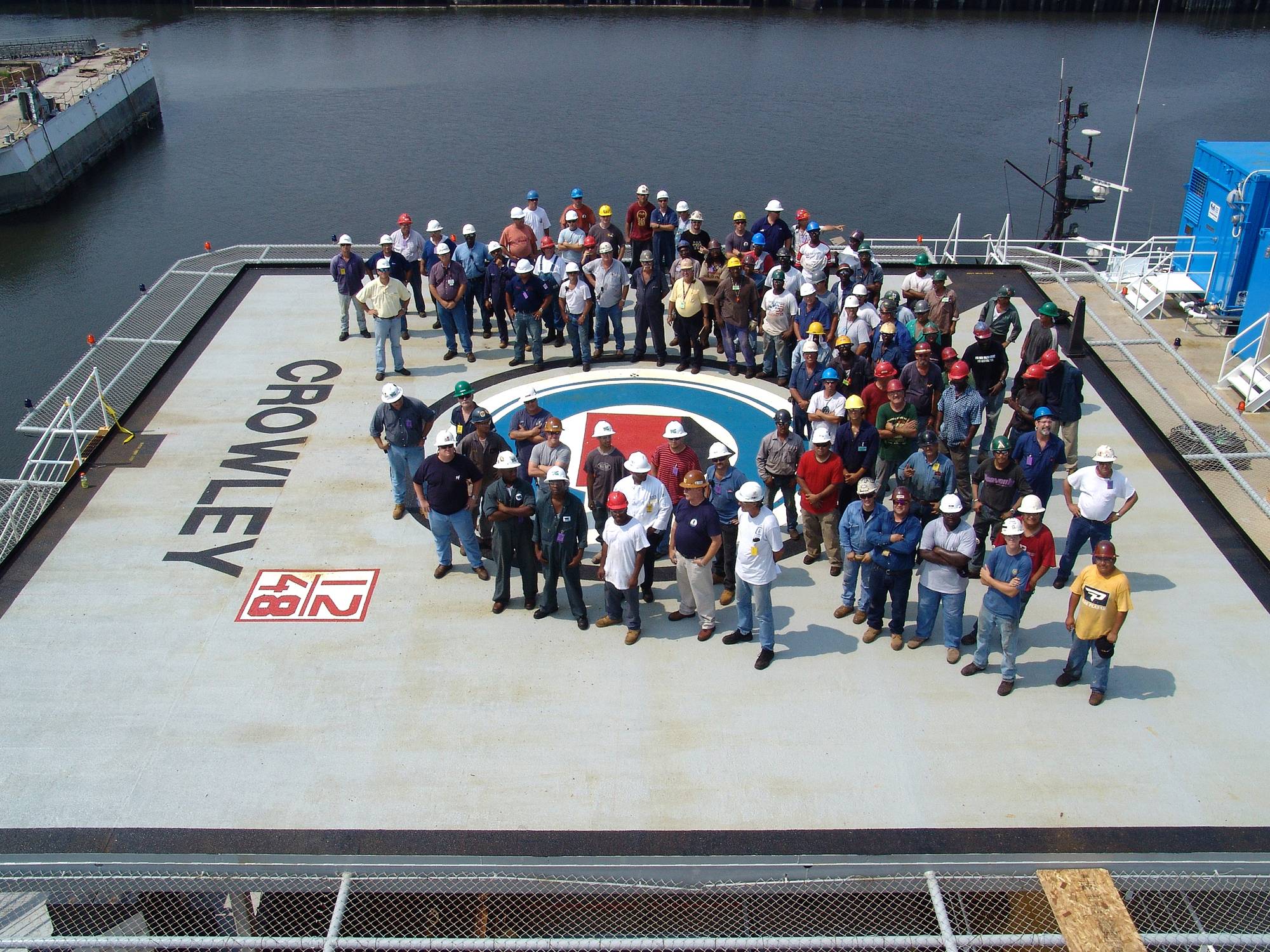
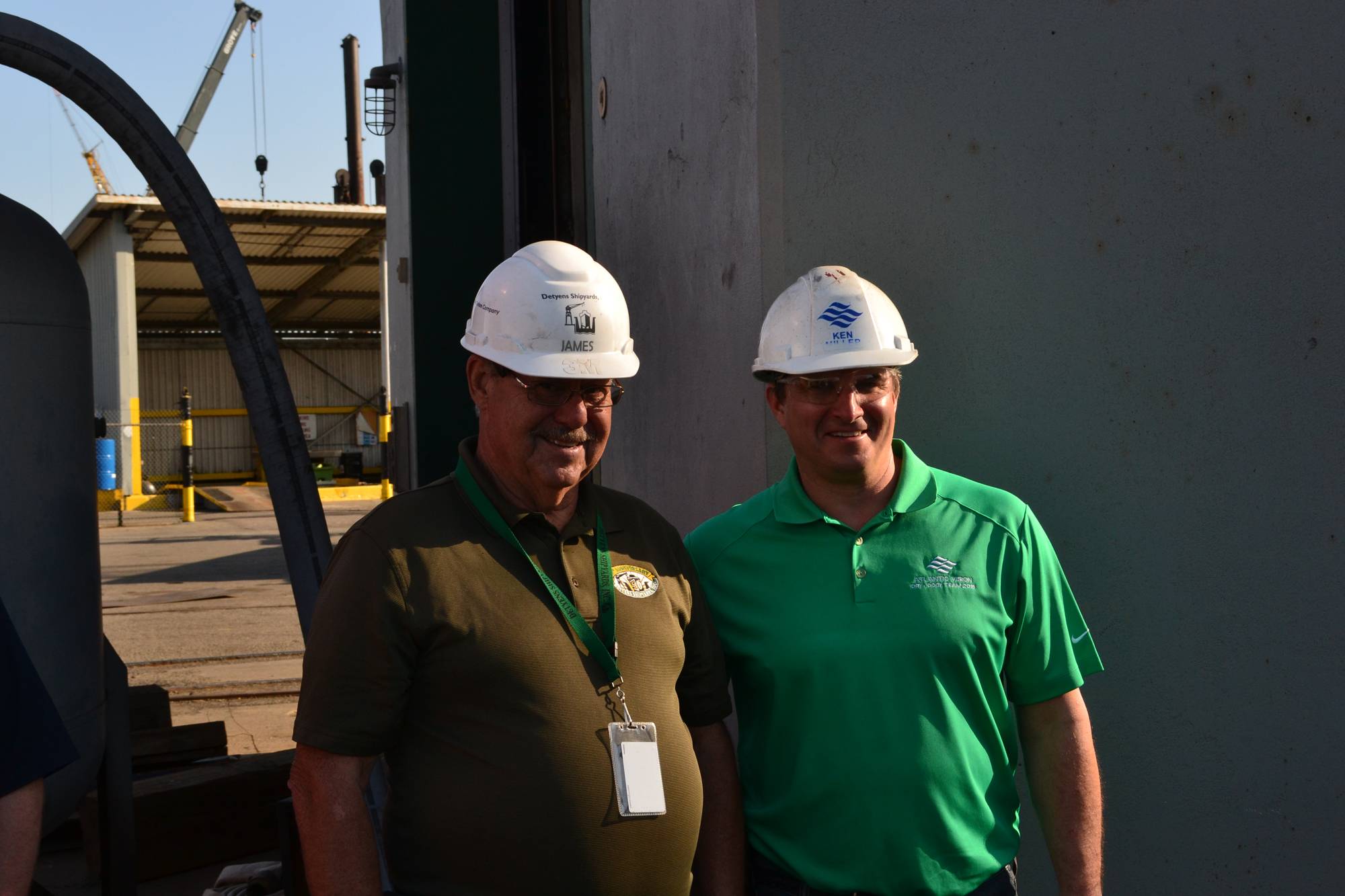
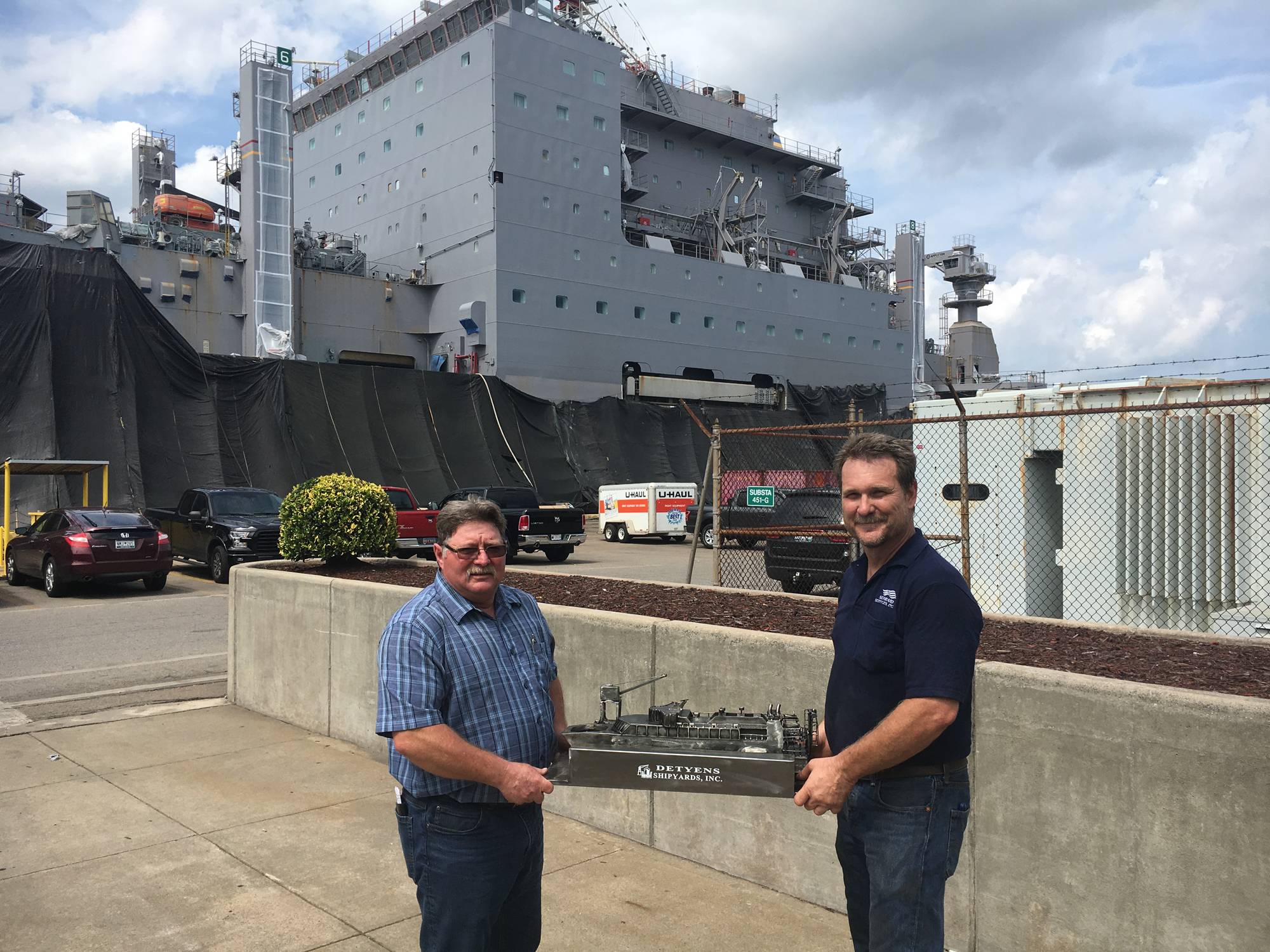
I know Detyens has a long history of serving the U.S. government and U.S. military. What do you see as some of the big market trends in the coming 12 to 24 months?
In the next 12 to 24 months, and what I've seen in the last 12 to 24 months, is the government trying to extend the life expectancies of most of its vessels. It's an aging fleet everywhere that you look, but they do have new vessels being built. For instance, we are currently working on the USNS John Lenthall. They have new TAO's that are on order, but they're trying to get as much as they can out of these vessels before the new vessels get here. That's a struggle both for MSC and for the shipyard trying to extend the life expectancies another five years or so.
With that then, what are your projections for this government section of your business in the coming year?
I haven't seen anything changing as far as the number of vessels go, but we have had an influx of Military Sealift Command (MSC) vessels right now.
The Ships
In looking at commercial and government work, how are they most the same, how are they most different?
They both hope for the same result; they both want the ship out quick, they want it fixed correctly and they want it under budget. The commercial side has a little more drive to get a ship out earlier, because when the ship is in the shipyard they're losing money. The government has a little more oversight, and everything has to be that much more maintained because you're dealing with government entities and they're supporting entities like the Navy.
The Detyens Shipyards Facilities
Looking at Detyens, how has the shipyard invested in the last 12 to 24 months?
Like I mentioned before, we recently purchased a brand new floating dry dock, and that has helped out tremendously. It's so much easier to use, and it will serve us well for 20 plus years. Most recently, the shift over to building two of our hull shop (which vastly expanded our) size and area where we can complete steel work.
We’ve also invested in the training of the employees, which is continuous. Most recently we had an influx of new employees to the rigging department, so we decided that it was a good idea to give everyone in the shipyard a refresher course on proper rigging techniques, a means to ensure that everyone is working together.
The one thing that's nice about Detyens: there’s not the mentality that “I’m in this shop, they’re in that ship.” Even if you're not a rigger, for example, but you see a rigger doing something incorrectly, you can stop that job (until the problem is corrected). Everyone works together, we'll correct each other and we make sure that we stay safe and get the job done correctly. That’s why I felt it was a really good idea that everyone in the shipyard got a refresher course on rigging and safety techniques.
Government Ships
Can you discuss how COVID has materially impacted your business?
I've been working MSC vessels pretty much the entire time (since COVID has been around) and seen how the government, and Detyens, have evolved. Initially, while everything around us seemed to shut down, the ships still needed to get fixed so we pressed forward and found ways around it. One of the biggest problems was just getting material from across the country and overseas.
Beyond materials, it was a challenge getting people here with air travel delayed and drive times adding to the duration. Then if you were to have to drive it would take you three or four times as long. I think everyone – both on the Detyens side and on MSC side – has done a good job in evolving with COVID. Right now the current vessel I'm on, the USNS John Lenthall, we're really just moving along as we were before COVID. It seems to have come full circle and we have a good handle on how to get to the next step.
Can you discuss in detail one or two recent case studies, recent ships, ship jobs performed for the government, in the past 12 months that you think highlight the capabilities?
We had the USS Patuxent in here last year and the largest package on the job, the most time consuming package on the job, was replacing all the steel and foundations in way of their transfer stations up on deck. All seven stations having to basically be broken down, replacing the steel, replacing the foundations, re-machining, reinstalling, retesting. It was an undertaking. With the new steel shop we are able to transfer all of the foundations over to that shop and knock them out off-site, ensuring it wasn't affecting the work up on the deck. Even during COVID we were able to knock out all seven stations and get the ship out of here successfully.
